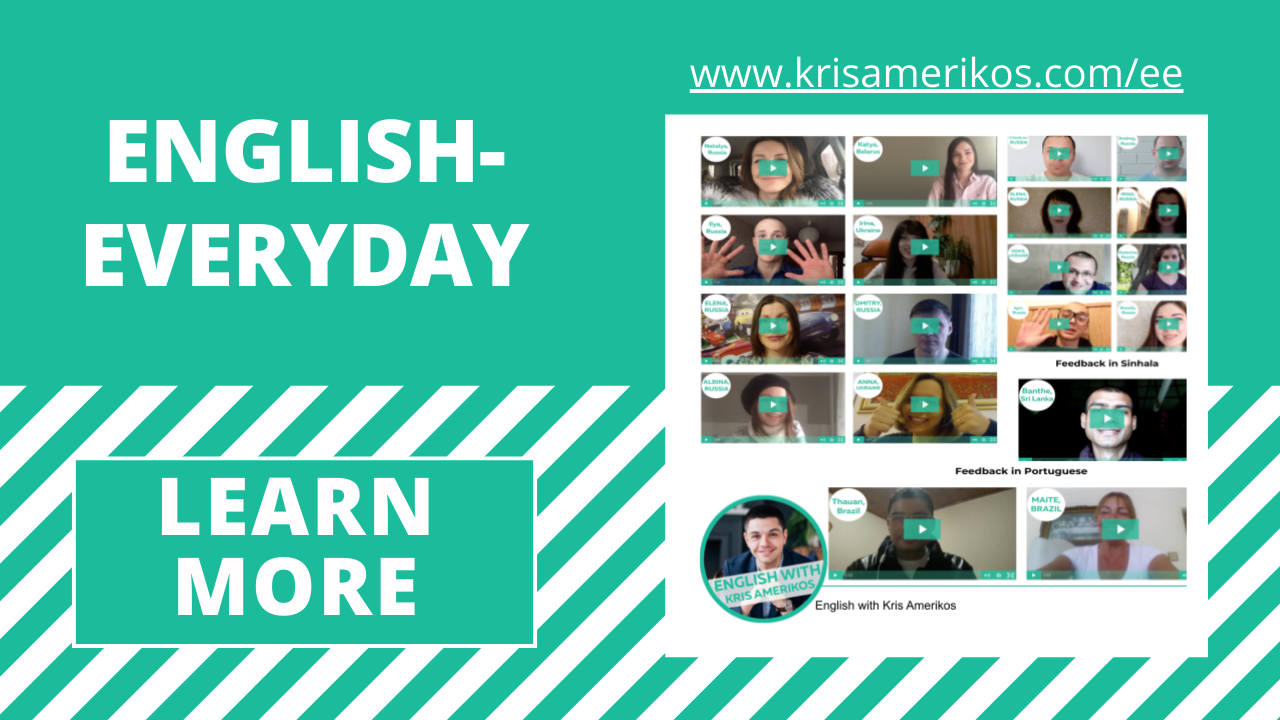How To Improve Spoken English - Detailed Explanation

Most English language learners know the rules of English grammar but complain about not being able to speak English fluently. The best way to improve spoken English is to speak English. However, other techniques can help you improve your speaking skills too.
Why It’s Important To Improve Your Spoken English
Improving your spoken English will improve your confidence when communicating in English. Excellent spoken English skills will help other English speakers understand you clearly. This will ensure you get your point across quickly and easily in English.
Improving your spoken English skills will also help you improve your listening skills. When you learn to speak English fluently, you also learn how to understand other people who speak English fluently.
Best Way To Improve Spoken English
Below are our top ten tips for improving your English-speaking skills. The best way to improve your spoken English skills is to expose yourself to English in a variety of ways and then practice everything you learn every day.
Practice With Someone Who Is Native
Native English speakers are your best resource for learning English - and one that has no replacement. If you want to speak English like a native English speaker, then you have to find a native English-speaking partner. Native English speakers will correct your errors before they become habits and help you speak English fluently.
It’s one thing to learn a language, and it’s another thing to know how and when to use certain words and phrases. Some phrases may be correct but inappropriate to use in informal situations - and vice versa. An English-speaking partner can teach you the intricacies of the English language. This means you’ll be able to speak English in every situation.
Watch English Movies
Watching English movies is a great way to expose yourself to English from the comfort of your own home. Try to avoid watching English movies with your native language subtitles, but add English subtitles to make sure you understand the movie.
While watching the movie, pause and repeat unfamiliar words and phrases. Imitating a native English speaker will help you improve your rhythm of spoken English. It’s important to note when native speakers reduce and contract words (‘I’ve’ instead of ‘I have’) and when they don’t (‘I have to’ is never reduced to ‘I’ve to.’)

While you should enjoy the process, don’t forget that you need to listen and repeat to improve your spoken English skills.
Listen To English Podcasts
Podcasts are a step up from watching English movies because there are no visuals to help you understand what’s being said. There is also no option to add subtitles. However, podcast presenters speak loudly and clearly. This should help you understand everything that is happening in the podcast.
Listening to English and repeating what you hear is one of the best ways to improve your English-speaking skills. And what’s great about learning English is that there are English podcasts on every topic. You can learn new English words, improve your speaking skills and enjoy yourself all at the same time.
Read English Books Aloud
Reading, like listening, is a skill we can use to learn new vocabulary. It’s a skill we must use to expand our receptive vocabulary. Receptive vocabulary is the language that we can understand when reading and listening.

While reading is an important skill to learn on its own, you can also use it to practice speaking English. Reading English books out loud will help develop your speaking and pronunciation skills. The best part is that you don’t need to create the sentences. All the sentences are there for you to read. Reading aloud will also help you identify which words you understand in written form but can’t pronounce.
Practice Infront Of A Mirror
Pronunciation is difficult - there is no doubt about that. If you come across a word that you can’t seem to say correctly no matter how hard you try, then you need to find a video of a native English speaker saying the word. You must watch the mouth position of the native English speaker and replicate the same mouth shape.
You should use a mirror so that you can see if you’re copying the mouth shape correctly or not. If you do not follow the same mouth movement from the beginning to the end of the word, then you won’t create the same sound.
A lot of non-native English speakers think they are saying the same word as a native English speaker but they don’t get it 100% correct because they don’t form the same mouth shape. So the next time you struggle to pronounce a word, practice in front of a mirror and mimic the native English speaker’s mouth movements.
Make Mistakes
If you’re not making mistakes, you’re not learning. We will never be perfect the first time that we try something, but we will never become perfect if we don’t try. Failure is part of the process. If you have a native English-speaking partner, then you need to make mistakes so they can correct you.
The corrections they make after you make a mistake will stick in your head much better than any rules you learn on paper. Don’t be afraid to make mistakes. Remember, you’re learning a new language and that’s an incredibly challenging task.
It’s not only OK to make mistakes, but it’s necessary to make mistakes to improve. And besides, there’s more to successful communication than being grammatically correct and if you don’t know the exact word to express yourself, then use another word in its place.
Write
Writing and speaking are two productive language skills. Productive skills are skills that require you to produce language.

The best thing about writing is that you can go back and edit your mistakes. English learners can usually correct their own mistakes because they know the rules and theory but make mistakes when speaking and writing.
Keep an English journal and write in it every day. Write as though you are speaking English - don’t think too much about it and let your thoughts flow onto the paper. Then go back and edit what you have written. This is where you’ll see your strengths and weaknesses in English.
If you can improve your writing skills, then you will improve your English-speaking skills too.
Take Advantage Of Technology
Technology has made learning languages easier than ever. If you have an internet connection and a Zoom account, then you can bring a native English speaker into your home. You can practice speaking English in the comfort of your own home without the added pressure of going to a language school.
You should also use technology to record yourself when speaking English too. As with writing, try to speak as quickly as possible and avoid overthinking every single sentence. You can then listen to yourself again and pinpoint sentences you constructed well and ones that you need to improve on.
Remember to focus on your strengths instead of only picking apart your weaknesses. Writing and recording yourself are two resources that help you - so don’t let your weaknesses make you feel bad about your English language skills.
Focus On Learning New Vocabulary
Did you hear an interesting new phrasal verb in a movie or podcast? Or perhaps you read an unfamiliar word you hadn’t read before? Write it down. When you write down unfamiliar words, include an English-to-English definition and note which context the native speakers used the word, phrasal verb, or phrase in.
Revise these words every day and try to add a new word or phrase each time you watch a movie, listen to a podcast, speak with a native English speaker or read an English book.
It can take up to 17 exposures to a new piece of language for it to be stored in your brain, so make sure you’re allowing yourself to see it repeatedly.
Use English As Much As You Can Every Day
The best way to improve your English-speaking skills is to make sure that you’re exposing yourself to English every single day. It’s important to find a routine that fits into your lifestyle. Don’t go too big too quickly.
It might not be possible for you to learn English grammar, speak with English speakers and watch movies or read books for at least 3 to 4 hours per day. It is simply unrealistic for some people even though it is the ideal strategy for learning English quickly.
You must find a system that works for you and keep at it every day. You can start by setting a minimum number of hours that you know you can spend learning English every day. Even one hour a day is a great starting point.
What is English Everyday
English-Everyday is an English course with live lessons for English learners who want to improve their English with native speakers, professional teachers, and students from around the world.
You have live lessons where you can join every day. You can review all record lessons. There is a calendar of scheduled lessons so you can see when lessons are and at what time you can join.
In English Everyday program, you have support and also you have student chat where you can speak with other students from all around the world. You can look at our feedback page so that you can know from which countries our students are. Before you join our program, we strongly recommend you sign up for our free seminar with Kris Amerikos, where you can learn:
- What goals you need to have to get better results
- How to become fluent in English very quickly
- What you need to do to have perfect pronunciation
- The 3 biggest mistakes you need to avoid
- Which free resources will help you learn English
- The best resource to use to improve your speaking
Spoken English Skills That You Can Improve
There are a lot of things you can do to speak English fluently - both in a class and on your own. A class is a fantastic place to learn and to be corrected, however, you will need to revise and practice these corrections on your own to improve your English skills.
Learning is a two-way street ; which couldn’t be more true when learning a language. A teacher can teach you everything you need to know, but you need to practice every day to improve your English skills.
How To Improve Spoken English Alone
While attending English classes and having a native English-speaking partner are both very important resources for learning English, it’s also important for you to improve your spoken English at home.

There are many things you can do on your own that will improve your English-speaking skills.
Improve Pronunciation
An English-speaking partner can only help improve your English pronunciation to a certain point. Thereafter, you need to put in extra work to improve your pronunciation. A great resource for improving your English pronunciation is an online dictionary where you can hear how native English speakers pronounce words.
If you struggle to say a word, then you must listen to it and repeat it over and over again until you get it right. Pay close attention to the mouth shape of native English speakers when they say the word to make sure you’re saying it like them.
If a sound exists in English that does not exist in your mother tongue, then you must practice it until you get it right. The inability to produce a sound in English can have a serious impact on whether other English speakers can understand you.
Working on your pronunciation every day will significantly improve your spoken English skills.
Remember To Think In English
You should think in English after English class, after watching a movie and after reading an English book. It’s important to recall everything you learnt and to have conversations with yourself in your mind.
Try to retell the stories you’ve watched or read to yourself or a friend in English. This will help you f orm your thoughts and opinions in English, which will help you share them with others when speaking English.
A great tip to remind yourself to think in English is to label the objects around your house in English. The constant reminders will help you remember to construct sentences in English in your mind.
Learn New Words
You must remember to learn new English words every day. Keeping a notebook with you at all times will allow you to write down unfamiliar words that you hear while watching English movies or read while reading English books.
Once you learn a new word, try to use an English-to-English dictionary to understand the meaning. Write the English description next to the word and a few example sentences to remind yourself how to use the new English word.
Improve Your Rhythm Of Spoken English
While watching English movies or listening to podcasts, repeat sentences with the same rhythm and intonation as the English speakers. Learning the rhythm of spoken English will help you speak English fluently. It will also make it a lot easier for native English speakers to understand you.
Once you know the rhythm of spoken English, it will also become a lot easier for you to understand native English speakers. You’ll learn which words to focus on when listening instead of focusing on hearing every single word loudly and clearly.
Talk To Yourself Aloud
Speak to yourself aloud, record yourself, listen to yourself speaking, and see if you can correct your errors. You can also speak to yourself in front of a mirror to improve your spoken English skills. Having conversations with yourself will help you form sentences faster when speaking English with other people.
How To Improve Spoken English In 1 Month
There is no quick fix to learn how to speak English fluently in one month, however, you can vastly improve your English in a month. Join our free seminar to learn how to optimize your English language learning process. We will show you how to set yourself up so that you can see a big improvement in your spoken English in one month.
How To Improve Spoken English Pronunciation and Fluency
You need to be an active English learner to improve your spoken English pronunciation and fluency. You need to expose yourself to English, speak English, and learn English words and grammar rules every day to see results quickly. There may be no quick fix to learning a new language, but the rewards you see as you reach your goals will make it all worth it.









































